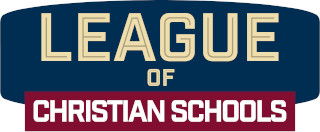During the 2018 Legislative Session, House Bill 1079 and House Bill 1435 were passed by the legislature and signed into law by Governor Scott that impact child care programs. These two laws became effective on July 1, 2018.
Distracted Adult
Florida law now requires child care facilities to provide parents/guardians with information pertaining to the dangers of leaving a child in a vehicle, including tips for prevention, during the months of April and September.
You center may create your own flyer or use the one created by the DCF below. Please share the “Distracted Adult” flyer with parents/guardians and maintain documentation that this information was shared with them. While this has been made a law, DCF has yet to create the rules for the law. DCF has plans to add this new requirement to the handbooks and classification summaries for all provider types. Once the rule is promulgated it will become a requirement that is monitored.
You can expect FLOCS to provide updates on the rule once it is in place. For the time being, we encourage centers to include the flyer with the required Influenza brochure and have parents sign for both.
Rilya Wilson Act
Children who are in the care of the state due to abuse, neglect, or abandonment are at increased risk of poor school performance and other behavioral and social problems. The state has given provider’s responsibilities for ensuring continuity of care and reporting absences of children in out-of-home placement that are enrolled at their facility.
Pursuant to s. 39.604, Florida Statutes, a child from birth to the age of school entry, who is under court-ordered protective supervision or in out-of-home care and is enrolled in an early education or child care program must attend the program 5 days a week unless the court grants an exemption. A child enrolled in an early education or child care program who meets the requirements of this act may not be withdrawn from the program without prior written approval of the Department or community-based care lead agency. If a child covered by this act is absent, the program shall report any unexcused absence or seven excused absences to the Department or the community-based care lead agency by the end of the business day following the unexcused absence or seventh consecutive excused absence.
Educational stability and transition are key components of this act to minimize disruptions, secure attachments and maintain stable relationships with supportive caregivers of children from birth to school age. Successful partnerships are imperative to ensure that these attachments are not disrupted due to placement in out-of-home care or subsequent changes in out-of-home placement. A child must be allowed to remain in the child care or early education setting that he/she attended before entry into out-of-home care, unless the program is not in the best interest of the child. If a child from birth to school-age leaves a child care or early education program, a transition plan needs to be developed that involves cooperation and sharing of information among all persons involved, respects the child’s developmental stage and associated psychological needs, and allows for a gradual transition from one setting to another.
This law provides priority for child care services for specified children who are at risk of abuse, neglect, or abandonment. These children are also known as Protective Services children.
Rilya Wilson Act Requirements:
- Protective services children MUST be enrolled to participate 5 days per
- Protective services children MAY NOT be withdrawn without prior written approval from the Department of Children and Families (DCF) or Community Based Care (CBC).
- If a Protective Services child has 7 consecutive excused or any unexcused absence, the child care provider MUST notify the appropriate community based care
- The Department and child care providers MUST follow local protocols set up by the CBC to ensure
- If it is not in the best interest of the child to remain at the child care or early education program, the caregiver MUST work with the Case Manager, Guardian Ad Litem, child care and educational staff, and educational surrogate, if one has been appointed, to determine the best setting for the
** If you have concerns regarding any child that you may care for, please contact the Florida Abuse Hotline at 1-800-96-ABUSE**


